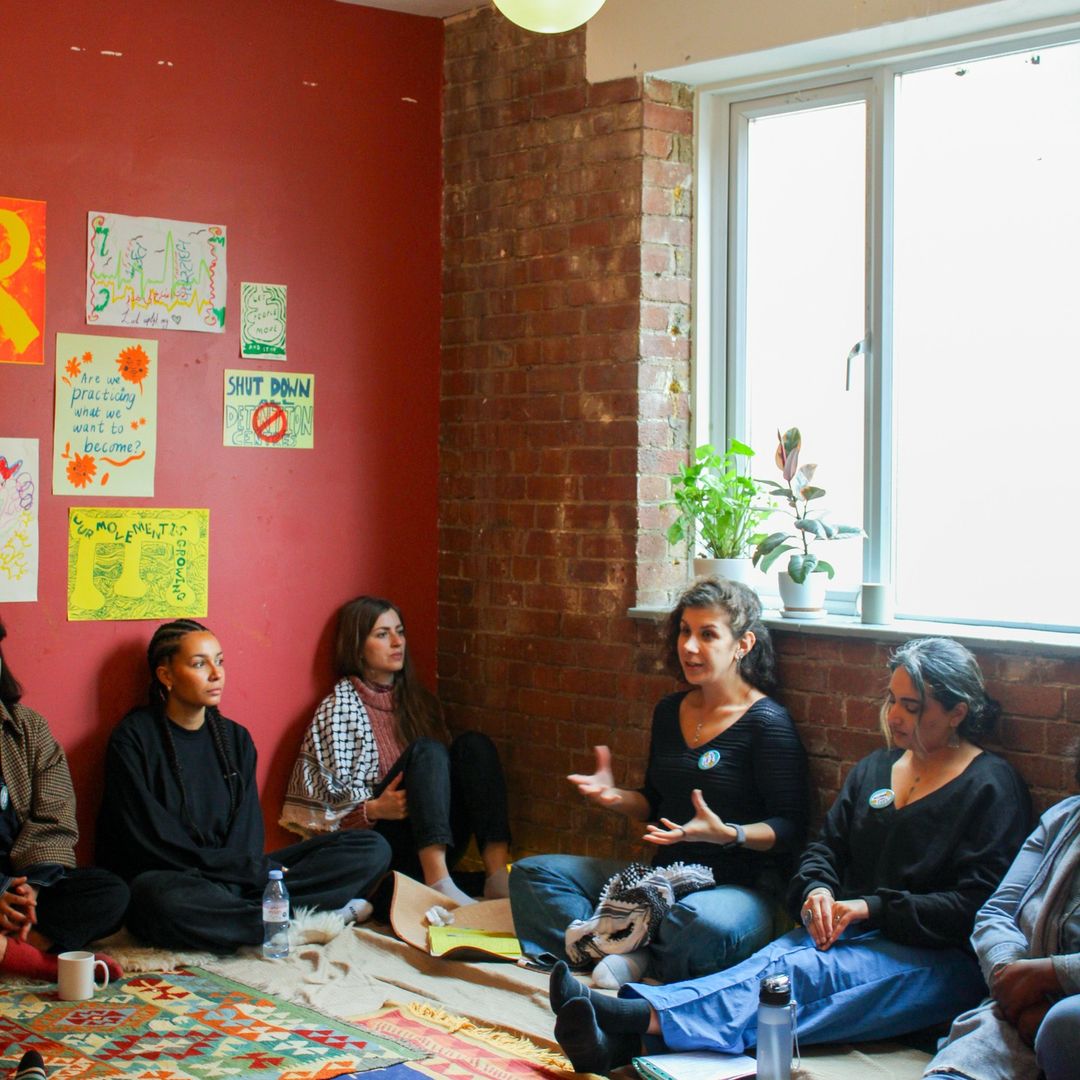Guest blog by Dima Mekdad, Co-Chair of Refugee Week
Each year, Refugee Week celebrates the contributions, creativity, and resilience of those seeking sanctuary. It is vitally important to create alternative narratives that contrast with the common depiction of displaced people as helpless victims or threats.
But with Refugee Week 2024 here, I, like many, find myself in deep reflection about the notion of joy and celebration at a time when the world is enduring unimaginable pain and injustice. The horrors we are witnessing in Palestine in Gaza and the West Bank, Sudan, Haiti, and the Congo leave many of us in profound grief.
Last year, I faced a similar moment addressing an audience at the opening of the Syrian Arts & Culture Festival, just months after the devastating earthquake in Syria and Turkey, and during intense airstrikes on Gaza. The subsequent earthquake in Morocco and flooding in Libya only added to the overwhelming sense of loss. When each day brings new horrors to our screens and social media feeds, how can we feel joy?
The answer, I believe, for those of us who have been forced to leave our homes, is that we start with a collective celebration of our journeys and survival. In doing so, I believe that we can find solace in our extraordinary human ability to hold grief and joy side by side—in our bodies, our homes, our work, and our everyday lives.
Indeed, in this ability to hold joy and grief side by side, no one is as proficient as refugees and asylum seekers. Each day we confront the world in our new homes against the backdrop of our original homelands, our birthplaces, being on fire. We wake up, crack jokes, and a minute later, send a text to check in on a family member who’s in danger. Both these responses come from a genuine place within us, from our first home—our body—and that’s why the theme of Refugee Week this year, “Our Home,” is so poignant and appropriate.
The theme “Our Home” encapsulates the journey from the micro to the macro level, from the individual to the collective. Our body as our first site of home, our physical spaces as a second layer of home: our new home countries, our birthplaces and of course, our planet, our collective home. Each of these homes carries grief and joy, pain and celebration, injustice and liberation work. We come to Refugee Week to lean into the celebration, to allow joy to take up space for a change. We lean into joy as an act of resistance, as we have learned from our comrades and teachers of Black Joy, including Audre Lorde, bell hooks, and Kleaver Cruz.
In this celebration, we build our resilience. Resilience is a heavily loaded word for me, especially in the context of refugees and migration. However, I have decided to grow a new relationship with the word after hearing Nkem Ndefo speak on anchoring resilience. She described it as “a celebration of our capacity as humans to adapt to challenge, a celebration that built into our biology we have a range of responses that help us survive, that help us live and make it through difficult times, challenges, and threats of all kinds.”
So when I think of celebration at these times, I think of it as an act of resistance. It is an active engagement in growing one’s own and one’s community’s anchoring resilience and survivability through the adversity we are facing now. It’s like nourishing our bodies with food to keep going.
Refugee Week, a festival that seeks to celebrate what is so often demonized, grows each year in the UK and around the world not because it is an escape from the brutal realities of displacement, but because it is necessary. Joy is essential. Creativity helps us heal, reflect on what we have lost, and imagine what might one day be possible.
More than one million people will take part in Refugee Week this year, in arts centers, cinemas, community venues, schools, parks, and homes across the country and the world. Celebrating together makes us stronger, more determined, and more able to move forward with our own lives and to lift our voices in support of those everywhere who are struggling to survive.
For all the ways you can take part, visit refugeeweek.org.uk
Biography:
Dr. Dima Mekdad (She/her), Co-chair of Refugee Week. Dima is Executive Director of Candoco Dance Company. She was Shubbak Festival’s former general manager. She has a PhD in Analytical Science from King’s College London. She used to be a project manager and a researcher at the UK National Measurement Laboratory for over nine years. Dima is the co-founder and former director of Qisetna: Talking Syria. She is also the co-founder and co-director of Zamakan CIC, the umbrella of SACF, London’s Syrian Arts & Culture Festival. Dima wears several hats, among them a storyteller, a generative-somatics practitioner and a new writer. Dima is also the Co-Chair of Refugee Week.
photo credit: Migrants in Culture (@sanabadri_)
